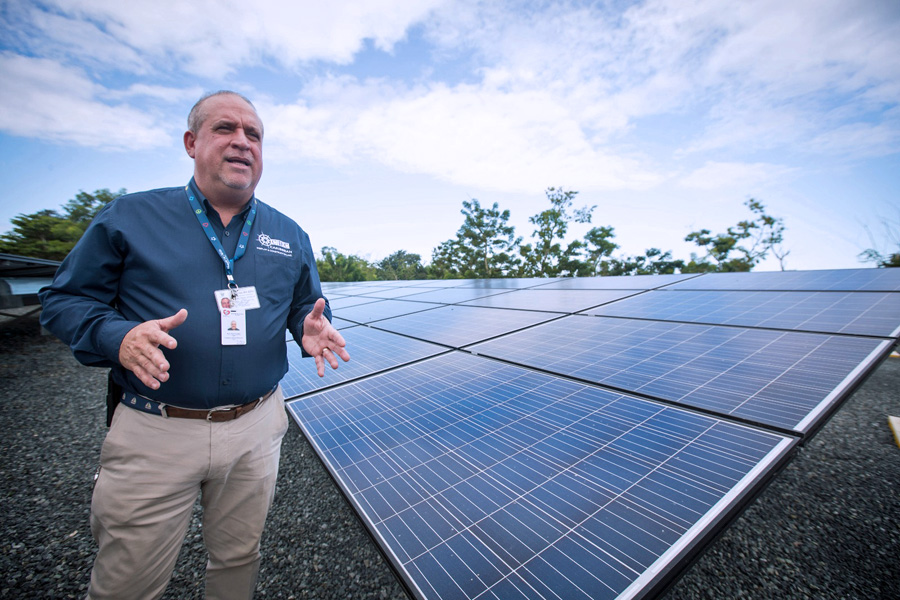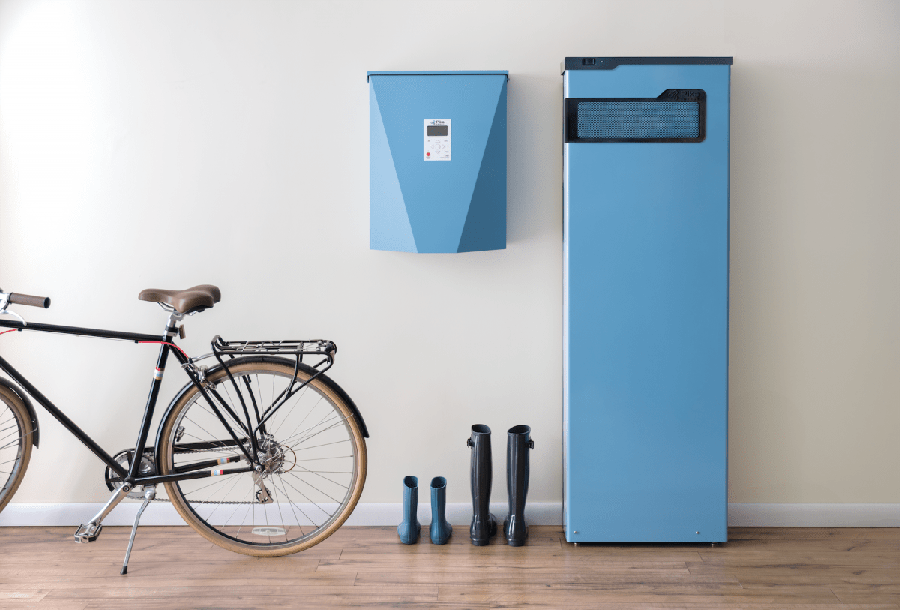Study: Energy from renewable sources would save Puerto Ricans $240M

The energy drawn from renewable sources could represent savings of up to $240 million in energy production by 2020, resulting in significant relief to thousands of island residents who are served by the Puerto Rico Electric Power Authority, according to the findings of a study unveiled Thursday by the Renewable Energy Producers Association.
However, that would depend on the PREPA’s ability to meet the requirements of Law 82, which stipulates that by 2015 renewable energy production in Puerto Rico should reach 12 percent, while in 2020, that percentage should be 15 percent.
Beyond meeting the requirements established by Law 82, and the government’s willingness to fulfill it, “we must not overlook that boosting renewable energy projects would mean an investment of about $5.4 billion from the private sector as a whole, the creation of 19,000 jobs, and wages amounting to $490 million from now until 2020,” Association President Julián Herencia said, upon discussing the results of the study by analyst firm Estudios Técnicos.
He emphasized that “it is extremely important to comply with Law 82, but we need to expand our horizons beyond the law. Whether we manage to fulfill it or not, we must be convinced that renewable energy is good and necessary for Puerto Rico for many reasons.”
In this regard, Herencia said renewable energy generation “creates strong economic activity, benefiting the environment and the health of all Puerto Ricans, and reduces the electricity bill for all.”
Furthermore, he insisted that “if the 60 projects that are pending before PREPA got the go-ahead, the immediate economic impact would be even greater. According to the study, the fiscal impact during the construction phase is estimated at $112.7 million, even when taking into account the applicable tax exemptions by decree to such investment.”
According to PREPA’s energy production and purchase costs, buying renewable energy savings could cost from $149.2 million to $238.8 million, the study showed.
This estimate stems from a savings of between 5 cents to 8 cents per kilowatt and a net production of 2208.5 million kilowatt-hours in 2015 and 2984.8 million in 2020, Herencia said.
The cost of PREPA’s electricity generation, coupled with maintenance costs, is 20.13 cents a kilowatt. Meanwhile, the main element of that cost is the purchase of fuel, which averaged 18.39 cents a kilowatt for the first six months of fiscal 2013, according to the analysis.
It is estimated that the cost of renewable energy will be an average of 14.4 cents per kilowatt, therefore, the savings in power purchases cost could range from 5 cents to 8 cents a kilowatt hour.
Environmental benefit
The study also points out the environmental and health benefits for citizens related to complying with Law 82. The document notes that, if 2.2 billion KW/h of renewable energy was produced by 2015, it would represent eliminating 1.7 million tons of C02 and 416,812 pounds of toxic gases from the environment.
Meanwhile, by 2020, producing 2.9 billion KW/h would eliminate 2.3 million tons of CO2 emmissions and 521,014 pounds of toxic substances.
“This study does nothing but validate the precepts that we have provided for the past months regarding the benefits for all Puerto Ricans, not only to comply with Law 82, but to pursue proposed renewable energy projects under a clear and reliable public energy policy framework,” Herencia said.
By dragging its feet on validating projects already under contract, PREPA “creates an environment of uncertainty and despair among investors, not just those that come from outside, but also locally,” he said.
“Moreover, if renewable energy initiatives are conducted under the law and in harmony with the environment and agriculture, as are proposed, Puerto Rico could become an example for the rest of the world, especially the neighboring countries in the Caribbean, on how to promote, design, build and operate this type of facility,” Herencia concluded.













As he and the Clinton Global Institute began helping Puerto Rico in 2009, President Clinton said in Las Vegas:
“In the United States, the most compelling candidate for complete energy independence is Puerto Rico, because they have to import 100 percent of their energy. The Congress has battled, for years and years about what kind of tax incentives we ought to give to Puerto Rico to get new manufacturing jobs down there… A lot of the incentives that have been given and lower labor costs that are enjoyed have been totally wiped away in Puerto Rico by the fact that they have to import 100 percent of their energy. And they pay much more for it than the rest of us do. So, why doesn’t America say, ‘That’s part of the United States, and we’re going to figure out a way through the sun, through the wind, through efficiency, through closing landfills, and through all the stuff we talked about to make Puerto Rico completely energy self-sufficient.’ If we can do it, then it should be done.”
He inspired and his Clinton Global Initiative provided technical assistance to retrofit the Minillas Govt. Center, install LED street lights “de Barrio Obrero a la 15” and create the green roof at Ballajá.
I’m glad that this collaboration with our government will continue into the future.